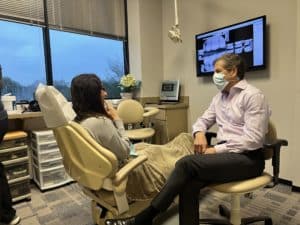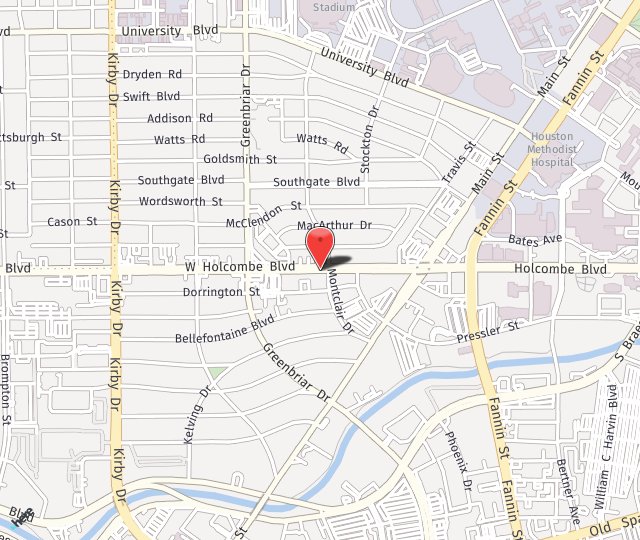We often get referral from ENT specialists for patients who have ear pain and it is related to TMJ as opposed to the ear itself. Yes, ear pain can be from TMJ disorders. The following is a brief explanation of how this can occur:

- Referred Pain: The temporomandibular joint is located close to the ear, and pain from the joint can be referred to the ear area. This means that even though the primary issue is in the jaw joint, you may experience pain in the ear or surrounding areas.
- Muscle Tension: TMJ disorder often involves muscle tension and spasms in the muscles surrounding the jaw and temporomandibular joint. These muscles are interconnected with muscles in the ear region. Tension in these muscles can radiate pain to the ear, leading to discomfort.
- Misaligned Bite: a misaligned bite can compress the jaw joints back towards the ear and put pressure on the jaw joint space which is in front of the ear.
- Nerve Compression: In some cases, dysfunction of the temporomandibular joint can lead to compression or irritation of nearby nerves. The trigeminal nerve, which is responsible for sensation in the face, jaw, and certain areas of the ear, may be affected. This can cause pain, tingling, or numbness in the ear region.
- Eustachian Tube Dysfunction: The temporomandibular joint is closely associated with the Eustachian tube, which helps equalize pressure in the middle ear. Dysfunction of the TMJ can impact the function of the Eustachian tube, leading to symptoms such as ear fullness, popping sensations, or ear pain.
- Inflammation: Inflammation within the temporomandibular joint can spread to surrounding tissues, including the ear area. This inflammation can cause pain and discomfort in the ear region.
Overall, TMJ disorder can manifest as ear pain due to its close anatomical relationship with the ear, as well as its impact on surrounding muscles, nerves, and structures. There are also many other symptoms that are caused by TMJ and many are not aware of:
Dr. Konig explains, “When treating TMJ issues, it is necessary to look at the whole picture, not just the teeth. Posture, airway, and facial features all play a role.”
Some TMJ Symptoms are:
*Headaches
*Neck pain
*Shoulder pain
*Tired feeling in your face
*Swelling on the side of the face
*Facial Asymmetry
*Clicking or popping noises in your joint
*Worn Teeth
*Broken Teeth
*Vertigo (dizziness)
*Ringing of the ears (tinnitus)
*Airway issues (snoring or sleep apnea)
*Postural issues
And the list goes on and often patients have multiple symptoms. Sometimes no pain is present in the jaw joint.
We often see patients on multiple medications from neurological medications, to antidepressants, to muscle relaxers, and even botox to try to eliminate the problem. These methods only act as a band aid to try and mask the problem. For example, if you dislocate your shoulder, one would not try botox or medications to realign the shoulder. The same can be said for your misaligned jaw. It is sometimes necessary to reposition the jaw, non-surgically, to a better physiologic position for comfort and function.
A difference with the jaw joints is the it is the only joint in the body connected to the other joint. Due to this anatomical feature, if one joint is affected the other is too. This is a reason facial asymmetry often occurs.
If you have questions regarding Houston TMJ Treatment or Non-surgical Jaw Treatment, please feel free to contact our office, Ronald W. Konig DDS, FAGD, LVIF, 713-668-2289.

